Description
Introduction to Sunflower Seeds
Sunflower seeds, derived from the helianthus annuus plant, have been a staple in various cultures for centuries. Originating from North America, these seeds were first cultivated by indigenous tribes for their nutritional value and versatility. There are primarily two types of sunflower seeds: the black oil seeds, commonly used for oil extraction and bird feed, and the striped sunflower seeds, which are predominantly consumed as snacks and used in culinary applications.
Despite their long history, sunflower seeds have often been overlooked as a healthy snack option. This is largely due to the overshadowing presence of more popular nuts and seeds such as almonds, walnuts, and chia seeds. However, recent years have witnessed a resurgence in their popularity, spurred by growing awareness about their numerous health benefits and culinary versatility.
Sunflower seeds are rich in essential nutrients, including vitamin E, magnesium, and selenium, making them a powerhouse of antioxidants and anti-inflammatory properties. Their nutty flavor and crunchy texture make them a delightful addition to a variety of dishes, ranging from salads and granolas to baked goods and even savory meals. This versatility, coupled with their affordability, has contributed to their increasing popularity among health-conscious consumers and culinary enthusiasts alike.
The modern shift towards healthier eating habits has undoubtedly played a significant role in bringing sunflower seeds into the spotlight. As more individuals seek nutrient-dense snacks that are both delicious and convenient, sunflower seeds have emerged as a go-to option. Their simple preparation and easy incorporation into various recipes further add to their appeal, making them a staple in many households.
Nutritional Profile of Sunflower Seeds
Sunflower seeds have garnered a reputation as a nutritional powerhouse, offering a wealth of essential nutrients that contribute to overall health and well-being. A mere handful of these seeds can provide a significant portion of the daily recommended intake of several key nutrients, making them an excellent addition to any diet.
One of the standout features of sunflower seeds is their high protein content. With approximately 20 grams of protein per 100 grams, they serve as a valuable plant-based protein source, particularly for vegetarians and vegans. This protein content aids in muscle repair and growth, making sunflower seeds an ideal snack for those with active lifestyles.
In addition to protein, sunflower seeds are rich in dietary fiber, which promotes digestive health and helps maintain a feeling of fullness, thereby assisting in weight management. Each serving offers around 9 grams of fiber, contributing to the recommended daily intake and supporting a healthy digestive system.
Sunflower seeds are also packed with essential vitamins and minerals. They are an excellent source of vitamin E, a potent antioxidant that protects cells from damage and supports immune function. Furthermore, they contain significant amounts of B vitamins, including thiamine, niacin, and folate, which play crucial roles in energy metabolism and brain health.
Mineral-wise, sunflower seeds shine with their impressive levels of magnesium, phosphorus, and selenium. Magnesium is vital for muscle and nerve function, while phosphorus supports bone health. Selenium, on the other hand, is an antioxidant that helps protect against cellular damage and supports thyroid function.
Healthy fats are another critical component of sunflower seeds’ nutritional profile. These seeds are abundant in unsaturated fats, particularly polyunsaturated and monounsaturated fats, which are known for their heart health benefits. These healthy fats can help reduce bad cholesterol levels, thereby lowering the risk of heart disease and promoting overall cardiovascular health.
Incorporating sunflower seeds into your diet can provide a substantial nutritional boost, offering a balanced mix of protein, fiber, vitamins, minerals, and healthy fats. Whether enjoyed as a snack or used as a topper for baked goods, sunflower seeds are an unexpected yet highly beneficial addition to a diverse and nutritious diet.
Health Benefits of Sunflower Seeds
Sunflower seeds, often overlooked as a simple snack, are a powerhouse of health benefits. Their rich nutrient profile can significantly contribute to improved heart health. Packed with healthy fats, particularly polyunsaturated fats, sunflower seeds help reduce LDL cholesterol levels, which is pivotal in maintaining cardiovascular health. A study published in the Journal of Agricultural and Food Chemistry highlights that the phytosterols present in sunflower seeds play a crucial role in lowering cholesterol levels.
Moreover, sunflower seeds are abundant in anti-inflammatory compounds. The presence of vitamin E, a potent antioxidant, helps combat inflammation in the body. Chronic inflammation is a known precursor to various diseases, including arthritis and diabetes. A research article in the American Journal of Clinical Nutrition suggests that regular consumption of vitamin E-rich foods like sunflower seeds can help mitigate inflammatory responses.
In addition to their cardiovascular and anti-inflammatory benefits, sunflower seeds are excellent for enhancing skin health. The high vitamin E content not only protects the skin from oxidative damage but also promotes skin repair and rejuvenation. Dermatological studies have shown that vitamin E can improve skin texture and reduce the appearance of scars and wrinkles.
Sunflower seeds also play a vital role in boosting the immune system. They are a good source of zinc and selenium, essential minerals that support immune function. Zinc is crucial for the development of immune cells, while selenium enhances the body’s ability to fight off infections. According to research published in the Journal of Nutrition, selenium supplementation has been linked to improved immunity in various populations.
Incorporating sunflower seeds into your diet can thus offer a myriad of health benefits. Whether consumed as a snack or used as a topper for baked goods, they provide a convenient and nutritious way to support overall well-being.
Sunflower Seeds as a Snack
Sunflower seeds have long been cherished for their versatility and nutritional benefits, making them an excellent choice for a standalone snack. Available in various forms such as roasted, salted, or flavored, sunflower seeds cater to diverse taste preferences while providing a nutritious boost.
Roasted sunflower seeds are a popular option, offering a delightful crunch and a rich, nutty flavor. Their ease of consumption makes them a convenient snack for people on the go. Salted sunflower seeds add an extra layer of taste, enhancing the natural flavors and making them even more enjoyable. For those seeking variety, flavored sunflower seeds come in a range of options, including barbecue, ranch, and even spicy variants, catering to different palates.
Incorporating sunflower seeds into a balanced diet is not only simple but also beneficial. A small portion of sunflower seeds can be a satisfying addition to your daily nutrition, providing essential nutrients such as vitamin E, magnesium, and healthy fats. Portion control is key to reaping these benefits without overindulging. A typical serving size of sunflower seeds is about one ounce, which is approximately a small handful. Including this portion as part of a healthy snack routine can contribute to overall well-being.
Mindful snacking is another important aspect when enjoying sunflower seeds. Taking the time to savor each bite, chewing slowly, and being aware of the flavors and textures can enhance the snacking experience. Pairing sunflower seeds with other healthy foods such as fresh fruit, yogurt, or a small piece of cheese can create a well-rounded snack that satisfies hunger and supports nutritional goals.
In summary, sunflower seeds offer a delightful and nutritious snacking option in various forms. By practicing portion control and mindful snacking, you can easily integrate sunflower seeds into a balanced diet, enjoying their numerous health benefits while indulging in their delicious taste.
Sunflower Seeds as a Topper for Baked Goods
Sunflower seeds have emerged as a versatile and nutritious topping for a variety of baked goods, adding both flavor and texture to your favorite treats. Whether sprinkled on bread, muffins, cookies, or cakes, these seeds bring a delightful crunch that can elevate even the simplest recipes.
Adding sunflower seeds to bread can transform an everyday loaf into a gourmet delight. By incorporating them into the dough or sprinkling them on top before baking, you introduce a nutty flavor and a satisfying texture. Similarly, muffins benefit from the added crunch and nutritional boost provided by sunflower seeds. Whether you are making banana, blueberry, or bran muffins, a handful of seeds can enhance the overall eating experience.
Cookies also pair well with sunflower seeds. From oatmeal raisin to chocolate chip, the seeds offer an unexpected but welcome contrast to the sweetness of the cookie dough. For cakes, sunflower seeds can be used in the batter or as a decorative and tasty garnish on frosting, adding a unique twist to traditional recipes.
To maximize the flavor of sunflower seeds, consider toasting them before using them as a topping. Toasting brings out their natural oils, enhancing their nutty taste and providing a deeper flavor profile. Simply spread the seeds in a single layer on a baking sheet and toast them in a preheated oven at 350°F (175°C) for about 5-10 minutes, stirring occasionally to ensure even browning.
For those looking to add an extra layer of flavor, seasoning the sunflower seeds is an excellent option. Toss them with a bit of olive oil and your favorite spices—such as paprika, garlic powder, or even a touch of cinnamon—before toasting. This simple step can imbue the seeds with additional complexity, making them an even more compelling topping for your baked goods.
Incorporating sunflower seeds into your baking not only enriches the flavor and texture of your creations but also boosts their nutritional value. Rich in vitamins, minerals, and healthy fats, sunflower seeds are an excellent way to make your baked goods both delicious and wholesome.
Recipes Incorporating Sunflower Seeds
Sunflower seeds are a versatile ingredient that can be seamlessly integrated into a variety of dishes, from breakfast items to snacks and desserts. They add a delightful crunch and a nutrient boost to any meal. Here are some easy-to-follow recipes that showcase the versatility of sunflower seeds.
Breakfast: Sunflower Seed Smoothie Bowl
Start your day with a nourishing sunflower seed smoothie bowl. Blend together 1 banana, 1 cup of spinach, 1/2 cup of Greek yogurt, 1/4 cup of sunflower seeds, and 1/2 cup of almond milk until smooth. Pour into a bowl and top with additional sunflower seeds, fresh berries, and a drizzle of honey. This breakfast is packed with protein, healthy fats, and essential vitamins to fuel your morning.
Snack: Sunflower Seed and Oat Energy Bars
These homemade energy bars are perfect for a mid-day snack. In a large bowl, mix 1 cup of rolled oats, 1/2 cup of honey, 1/4 cup of sunflower seeds, 1/4 cup of chopped almonds, and 1/4 cup of dried cranberries. Press the mixture into a lined baking dish and refrigerate for two hours. Once set, cut into bars. These energy bars are not only delicious but also provide a sustained energy release, making them ideal for busy days.
Dessert: Sunflower Seed Chocolate Chip Cookies
For a delightful twist on the classic cookie, try sunflower seed chocolate chip cookies. Preheat your oven to 350°F (175°C). In a bowl, cream together 1/2 cup of softened butter and 1/2 cup of brown sugar. Beat in 1 egg and 1 teaspoon of vanilla extract. Gradually mix in 1 1/2 cups of flour, 1/2 teaspoon of baking soda, and a pinch of salt. Stir in 1/2 cup of chocolate chips and 1/2 cup of sunflower seeds. Drop spoonfuls of dough onto a baking sheet and bake for 10-12 minutes. These cookies offer a unique blend of sweet and nutty flavors, making them a perfect treat for any occasion.
These recipes demonstrate how sunflower seeds can be incorporated into various meals, providing both culinary delight and nutritional benefits. Whether you are starting your day with a smoothie bowl, grabbing a quick energy bar, or indulging in a sweet treat, sunflower seeds are a fantastic addition to your diet.
How to Store Sunflower Seeds
Proper storage of sunflower seeds is essential to maintaining their freshness and nutritional value. Whether you purchase them shelled or unshelled, raw or roasted, the key to preserving their quality lies in understanding the best storage conditions and avoiding common pitfalls.
First and foremost, sunflower seeds should be stored in an airtight container. Exposure to air can lead to oxidation, which degrades the seeds’ quality and nutritional content. Airtight containers prevent this by creating a barrier against air, moisture, and other contaminants. Glass jars with tight-fitting lids, metal tins, or high-quality plastic containers with secure seals are excellent choices.
Temperature also plays a critical role in the longevity of sunflower seeds. Store them in a cool, dry place away from direct sunlight. Ideally, sunflower seeds should be kept at a temperature below 70°F (21°C). Higher temperatures can accelerate spoilage and cause the seeds to go rancid. A pantry or cupboard away from heat sources like ovens and stoves is an ideal location.
For extended storage, consider refrigerating or freezing sunflower seeds. In the refrigerator, they can last up to six months, while in the freezer, they can remain fresh for up to a year. When freezing, ensure the seeds are in an airtight container to prevent them from absorbing any freezer odors. Before using frozen seeds, allow them to thaw to room temperature to restore their natural texture and flavor.
Common pitfalls to avoid include storing sunflower seeds in humid environments, as moisture can lead to mold growth and spoilage. Additionally, avoid keeping them in porous containers like paper bags, which offer little protection against air and moisture.
By following these storage guidelines, you can ensure that your sunflower seeds remain a healthy and tasty addition to your snacks and baked goods for months to come.
Conclusion: Embrace Sunflower Seeds in Your Daily Diet
Sunflower seeds have emerged as an unexpected yet highly beneficial addition to both your snacking habits and culinary creations. Throughout this blog post, we have explored the numerous advantages of incorporating sunflower seeds into your diet. They are not only a rich source of essential nutrients such as vitamin E, magnesium, and healthy fats but also provide an excellent boost of antioxidants. This makes them an ideal choice for those looking to enhance their overall well-being.
The versatility of sunflower seeds cannot be overstated. Whether you prefer to enjoy them as a standalone snack or as a delightful topper for baked goods, their mild nutty flavor and satisfying crunch make them a favorite among health-conscious individuals. From adding a handful to your morning yogurt or oatmeal to incorporating them into salads, bread, and even desserts, sunflower seeds offer endless possibilities for culinary experimentation.
Moreover, their ease of use and storage ensures that you can always have this nutritious ingredient on hand. Pack them in your lunchbox for a midday energy boost, or keep a jar in your pantry for quick and easy access. By integrating sunflower seeds into your daily diet, you not only benefit from their health-promoting properties but also add a layer of texture and flavor to your meals.
In summary, sunflower seeds are a powerhouse of nutrition and a versatile ingredient that can effortlessly enhance your diet. Whether you are looking to improve your cardiovascular health, boost your immune system, or simply enjoy a tasty and wholesome snack, sunflower seeds are an excellent choice. We encourage you to experiment with different ways to incorporate them into your meals and experience the myriad benefits they offer.
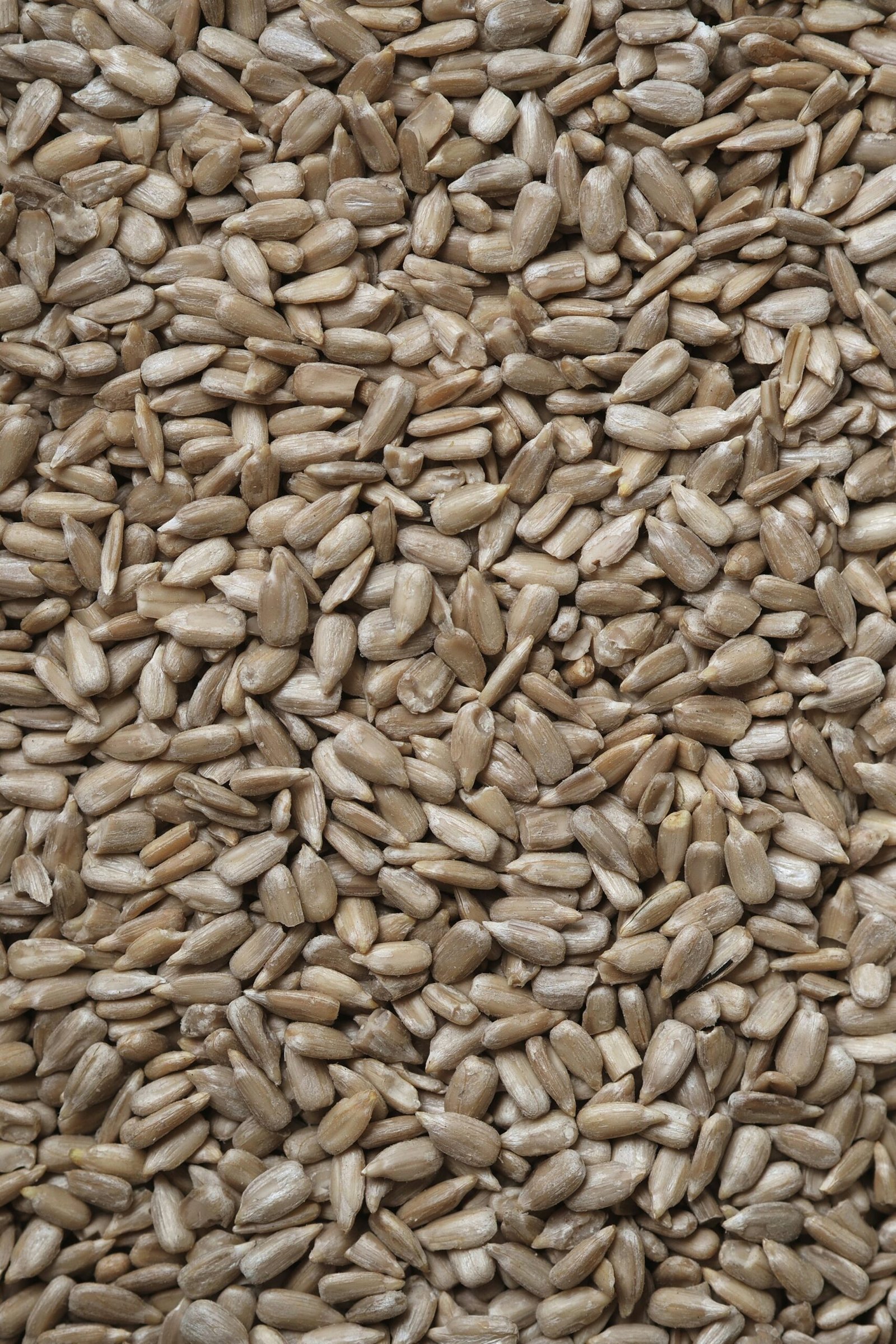
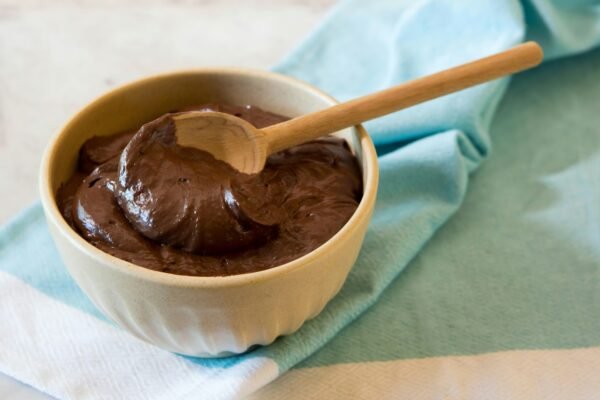
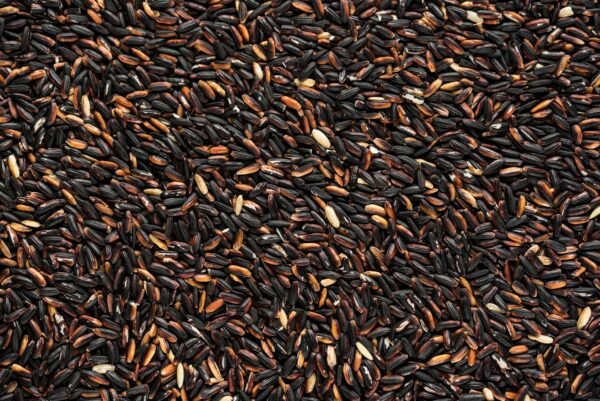
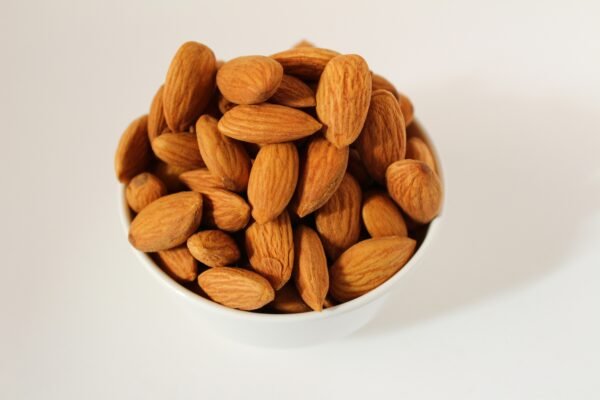

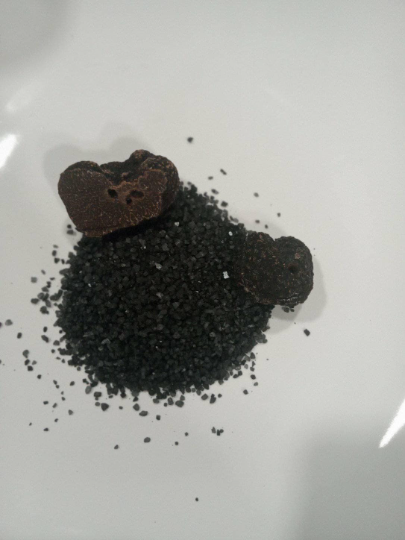
Reviews
There are no reviews yet.